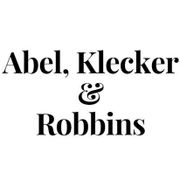
As people age, almost everyone experiences vision changes. Starting in your 40s, you might find that focusing close up is more challenging than it used to be. By the time you reach your 70s and 80s, you will likely have cataracts. That doesn’t mean you are relegated to only wearing glasses, though. In fact, almost everyone can wear some type of contact lenses, no matter how old they are, or what vision problems they are facing.
How Vision Changes as We Age
For many people, turning 40 also means starting to wear reading glasses, even when they already wear contacts. Presbyopia, or difficulty focusing on objects up close, begins to develop as the lens inside the eye loses flexibility and cannot as easily change shape as it once did. Presbyopia is considered normal and not indicative of any type of disease, but it does tend to worsen as you get older.
Getting older, especially into your 60s, also increases the risk of other common eye diseases, including glaucoma and macular degeneration. It’s more likely, though, that you’ll experience age-related vision changes, like difficulty seeing in low-light, dry eye, and visual disturbances like floaters. The older you get, the more your vision may decline, and your field of vision and ability to see a full spectrum of color can diminish.
 The most common age-related vision issue, though, is cataracts. This means that the lens in the eye becomes cloudy. However, most people with cataracts opt for surgery to replace the lenses, a safe procedure that fully restores vision.
The most common age-related vision issue, though, is cataracts. This means that the lens in the eye becomes cloudy. However, most people with cataracts opt for surgery to replace the lenses, a safe procedure that fully restores vision.
The Best Contact Lenses for Seniors
Many people think that as they get older, and their vision changes, they need to stop wearing contact lenses and switch to glasses instead, especially if they already wear glasses for distance and their presbyopia worsens. However, that’s not the case. Although in the past you may have been relegated to bifocals, today there are multifocal lenses that allow you to focus closeup and far away.
If you suffer from dry eyes, you can use contacts designed to stay moist longer. In extreme cases, you may be a candidate for a scleral lens, a type of hard lens that covers the entire cornea. That said, most people with dry eye do well with disposable soft contacts, which are more comfortable than hard lenses, and since they are replaced regularly, they stay moist and free of debris.
Only your eye doctor can determine whether you’re a good candidate for contact lenses. If you’re concerned about age-related changes to your eyes, but aren’t ready to give up your contacts, turn to the team at Abel, Klecker & Robbins in Lexington, KY. For over 60 years, they have provided patients of all ages with top-quality eye care services. Visit their website or give them a call at (859) 269-6921 to schedule an appointment today.
About the Business
Have a question? Ask the experts!
Send your question

